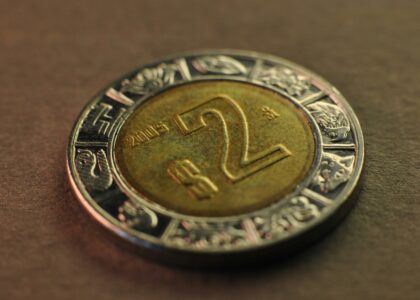Protecting Your Digital Assets in an Era of Hacks, Scams, and Market Volatility
Cryptocurrencies have opened the door to a new era of financial freedom. For the first time in history, individuals can control and store wealth outside the reach of banks, governments, and intermediaries. However, with freedom comes responsibility. Unlike traditional finance—where institutions safeguard deposits and regulators enforce protections—crypto security falls largely on the shoulders of individual investors.
This makes one question more urgent than ever: How do you keep your crypto safe?
From exchange hacks and phishing scams to private key theft and sophisticated malware, threats to digital assets are everywhere. Billions of dollars have been stolen from crypto investors over the past decade, and hackers are becoming more advanced with each passing year. For both beginners and seasoned investors, understanding security best practices is not optional—it is essential. The cryptocurrency ecosystem represents a revolutionary financial frontier, offering unprecedented opportunities for investment and technological innovation. However, this digital landscape is also fraught with sophisticated security challenges that require vigilant, multi-layered protection strategies.
This comprehensive guide will provide investors with a holistic approach to cryptocurrency security, covering everything from basic protective measures to advanced cybersecurity techniques. Whether you’re a novice investor or an experienced cryptocurrency trader, these strategies will help you protect your digital assets from emerging threats and potential vulnerabilities.
i- The Current Cybersecurity Landscape
Cryptocurrency Threat Landscape:
- Annual crypto theft: $3.8 billion (2022)
- Increasing sophistication of cyber attacks
- Evolving hacking techniques
- Complex digital asset ecosystem
- Fundamental Security Principles
ii- Understanding Cryptocurrency Vulnerabilities
Primary Security Risks:
- Phishing attacks
- Exchange hacks
- Wallet compromises
- Social engineering
- Private key theft
iii- Risk Assessment Framework
Comprehensive Security Evaluation:
- Personal risk tolerance
- Investment portfolio size
- Technical expertise
- Asset distribution
- Threat vulnerability analysis
iv- Why Crypto Security Matters
Unlike traditional bank accounts, cryptocurrencies are stored on decentralized networks. If your funds are stolen, there’s no customer support line or government insurance to help recover them. This “self-custody” model is empowering but also risky.
Key reasons crypto security is critical:
- Irreversible Transactions: Once sent, crypto transactions cannot be reversed.
- No FDIC Insurance: Crypto is not insured like fiat deposits in banks.
- Target for Hackers: With trillions in value, the crypto market attracts cybercriminals.
- Investor Responsibility: Private keys are the only access to funds; losing them means losing assets permanently.
v- Understanding Crypto Wallets
Your wallet is the cornerstone of your crypto security strategy.
Types of Wallets
- Hot Wallets (Online): Connected to the internet. Convenient but vulnerable to hacks. Examples: MetaMask, Trust Wallet.
- Cold Wallets (Offline): Not connected to the internet. Extremely secure. Examples: Ledger, Trezor hardware wallets.
- Paper Wallets: Private keys printed or written on paper. Safe from digital attacks but risky if lost or damaged.
- Custodial Wallets: Provided by exchanges. Easy to use but you don’t control private keys.
Best Practices for Wallet Security
- Use hardware wallets for long-term storage.
- Keep backup copies of your seed phrase in multiple secure locations.
- Never store private keys in cloud storage or email.
- Regularly update wallet software to patch vulnerabilities.
vi- Authentication and Account Security
- Even with secure exchanges, personal account protection is critical.
- Enable 2FA: Use Google Authenticator or Authy, not SMS.
- Use Strong, Unique Passwords: Combine letters, numbers, and symbols.
- Password Managers: Store complex passwords securely.
- Beware of SIM Swaps: Never rely solely on phone numbers for authentication.
Keeping your crypto safe requires a proactive, layered security strategy. From wallets and private keys to exchanges and DeFi, investors must be vigilant at every step.
The decentralized nature of crypto means you are your own bank. That power comes with the responsibility of safeguarding your assets against increasingly sophisticated threats. By following the tips in this guide—choosing secure storage methods, avoiding scams, practicing strong authentication, and staying informed—you can significantly reduce risks and protect your digital wealth.
In crypto, security isn’t a one-time action—it’s an ongoing discipline. Cryptocurrency security is an ongoing, dynamic process requiring continuous learning, adaptation, and proactive protection strategies. By implementing comprehensive security measures, investors can significantly reduce their vulnerability to potential threats and create a robust defense for their digital assets.
The future of cryptocurrency security lies in a holistic approach that combines technological innovation, personal vigilance, and strategic risk management.
FAQs
Q1: What’s the safest way to store crypto?
Cold storage using hardware wallets is the safest option for long-term holdings.
Q2: Can I recover lost private keys?
No. If you lose your private keys or seed phrase, your funds are gone forever.
Q3: Can cryptocurrency be completely secured?
While 100% security is impossible, comprehensive strategies can minimize risks significantly.
Q4: What should I do if my crypto is stolen?
Immediately report to exchanges, enable account freezes, and contact law enforcement.
Q5: Are decentralized exchanges more secure?
They offer different security advantages but also have unique vulnerabilities.
Meta Description
Learn how to keep your crypto safe with this comprehensive 6000+ word guide. Explore wallet security, private key protection, exchange safety, DeFi risks, and advanced strategies to protect your digital assets from hackers and scams.




